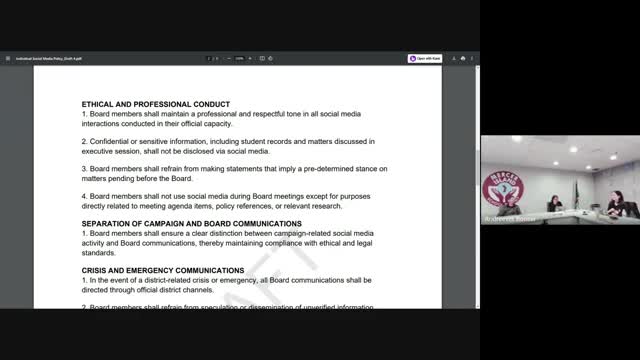Public input at Mercer Island meeting: supporters urge bond passage; commenters raise concerns about leadership, special education and administrative costs
Get AI-powered insights, summaries, and transcripts
Subscribe
Summary
Public commenters spoke in favor of the April bond measure, urged protection of librarians and nurses, voiced support for the superintendent, and raised concerns about district spending priorities and special-education rhetoric.
Public comment at the meeting reflected a mix of endorsements for the district bond and concerns about leadership, budget priorities and program cuts.
Supporters pushed for passage of the district’s capital bond in April, arguing the measure would preserve aging facilities and avoid higher costs later. A parent volunteering on the bond committee said the proposed $20.25 million bond equates to a modest tax increase for homeowners — she cited local tax-rate comparisons and encouraged voters to return ballots promptly. Several speakers said capital upgrades are necessary for safe, modern learning spaces.
A group of teachers submitted a letter and several staff members spoke in praise of Superintendent Dr. Rundle, saying he prioritizes student well-being and urging the public not to conflate leadership disagreements with administrative failure. Lucy Anderson, a teacher and parent, told the board: “These values resonate deeply with us as they are the foundation of the work that we do every day,” and urged community unity ahead of the bond vote.
Other public commenters raised budget and governance concerns. One commenter criticized district leadership and singled out a board member for alleged antisemitic statements; another questioned the district’s administrative staffing levels and asked whether higher-paid administrators could be reduced to avoid cuts to frontline services. Parent and education advocates pressed the board to demonstrate fiscal accountability and to provide data showing administrative costs translate into improved student outcomes.
Speakers with direct service roles urged the board to prioritize preserving certified teacher-librarians and adequate nursing coverage. A district teacher-librarian told the board that replacing certified librarians with clerical staff would remove instruction, curated collections and information-literacy support: “Trained librarian professionals are not a luxury. They're necessities for fostering literacy, inquiry, and lifelong learning,” she said. Several parents similarly emphasized the value of librarians and nurses for students’ day-to-day support.
Speakers also criticized framing special-education services as a budget problem rather than a legal and educational obligation. A parent and advocate said framing special education as a financial burden is “offensive” and urged the board to address management and planning issues rather than treating legally required services as optional.
The board did not take immediate action on the public-input items listed; staff and board members acknowledged the range of input and said they would continue budget work and report back to the board.
